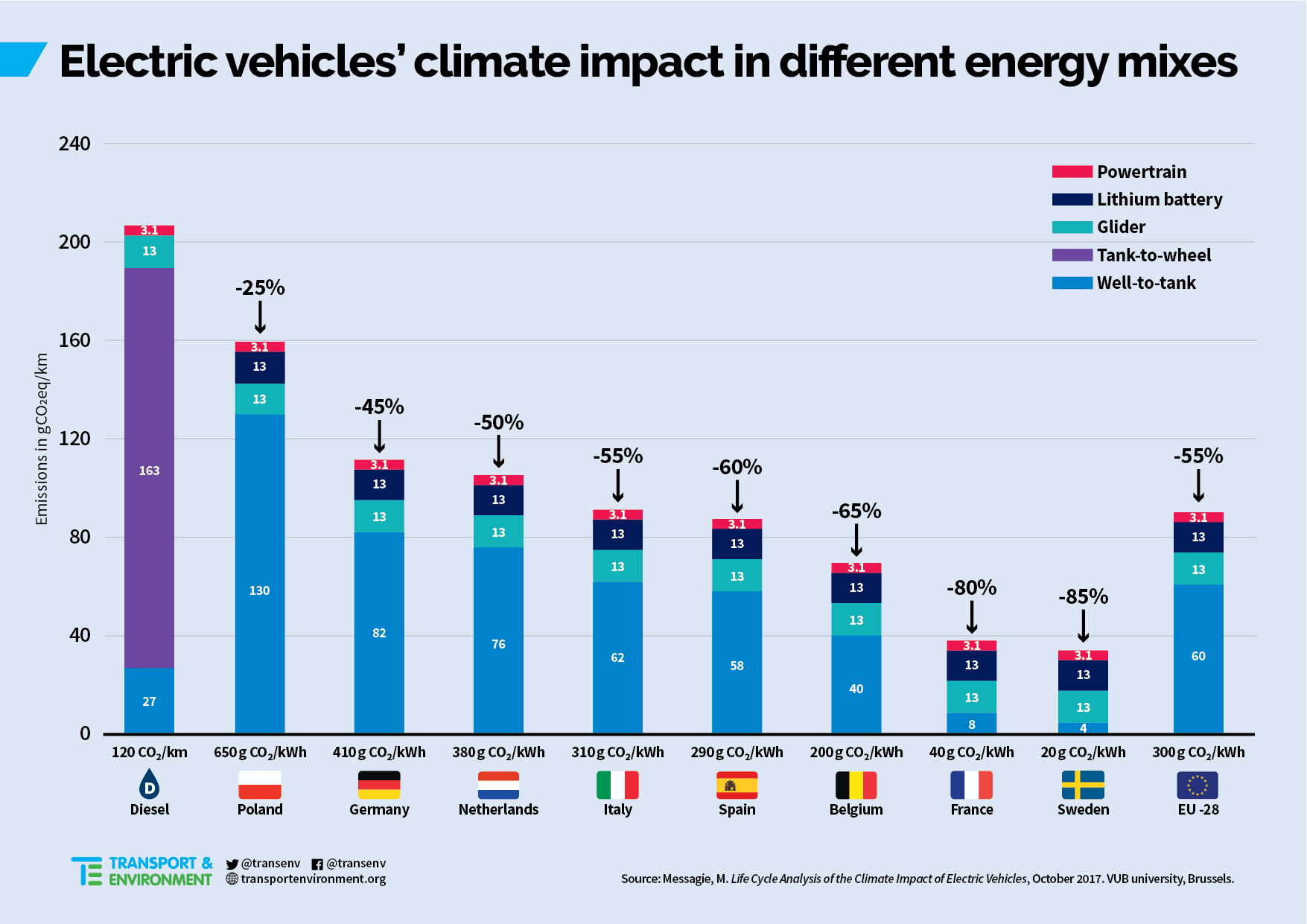
Interested in this kind of news?
Receive them directly in your inbox. Delivered once a week.
Even in countries with the highest GHG intensity of electricity generation – Poland and Germany – the EV performs better on a lifecycle basis (including the emissions in manufacturing the battery and vehicle) than the diesel car. Using the Polish average, an electric vehicle emits 25% less CO2 over its lifetime, while in Sweden an EV emits 85% less. Meanwhile, EVs’ sustainability will improve further with battery technology advances and as more batteries are re-used for electricity storage or recycled.
Yoann Le Petit, clean Vehicles and emobility officer at T&E, said: “Today an electric vehicle driving on Polish electricity – the most carbon intensive in the EU – still has a lower impact on the climate than a new diesel car. With the rapid decarbonisation of the EU electricity mix, on average electric vehicles will emit less than half the CO2 emissions of a diesel car by 2030 including the manufacturing emissions.”
Further research by T&E shows the availability of critical metals for batteries, such as cobalt and lithium, will not be constrained in the coming decades and won’t stop the EV transition, as some have argued. In the case of lithium, reserves could last for an estimated 185 years. T&E said the extraction of these materials should be certified against high standards to manage environmental and social impacts. However, in the long-term, innovation will help reduce the quantity of critical metals used in EVs.
Yoann Le Petit concluded: “The electric vehicle revolution will lead to a sharp increase in demand for critical metals. But the evidence shows there will be no supply constraints if there are investments in new mines and processes. The industry must however ensure that minerals are sourced sustainably.”
EVs account for just 1.7% of new vehicles sold in Europe. The European Commission is considering including a zero-emission vehicle sales quota in its proposal for the cars and vans CO2 regulation which is expected in early November.
Read more:
Study and briefing: Electric vehicle life cycle analysis and raw material availability


